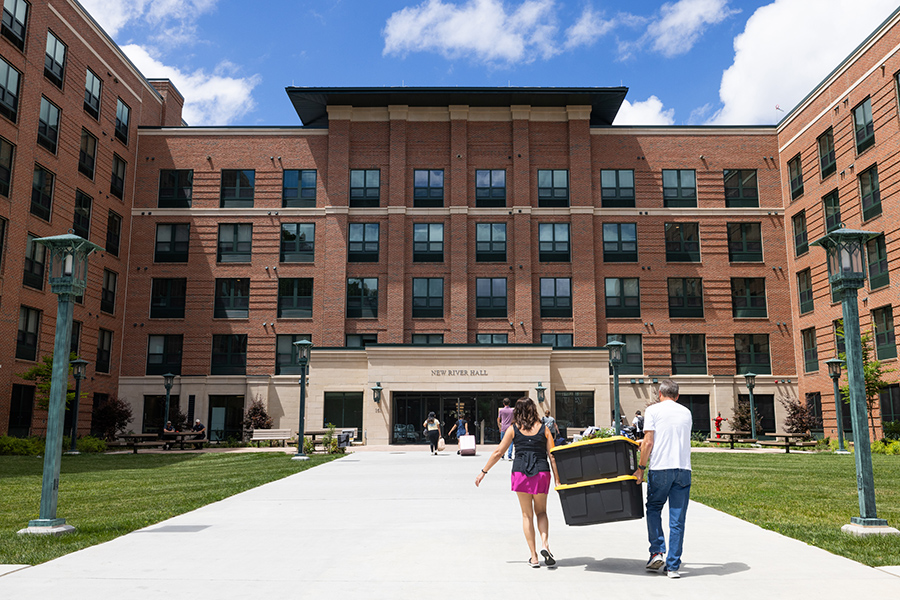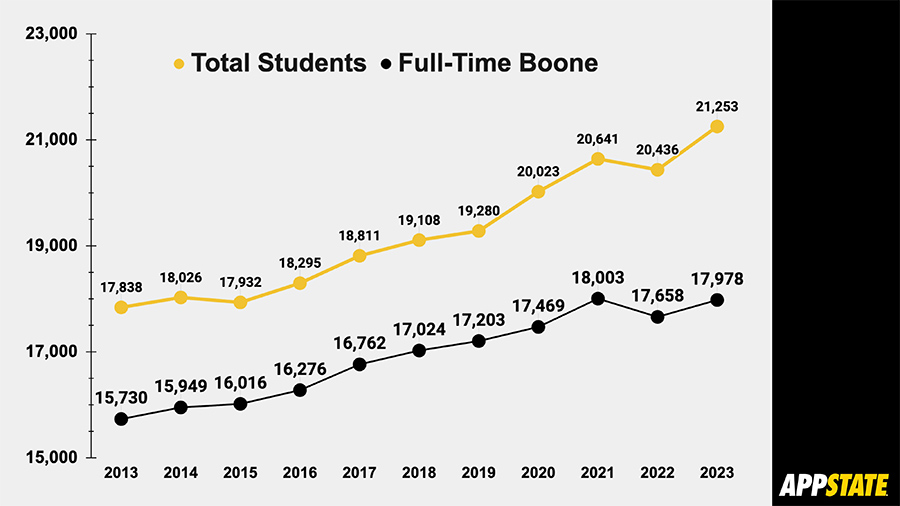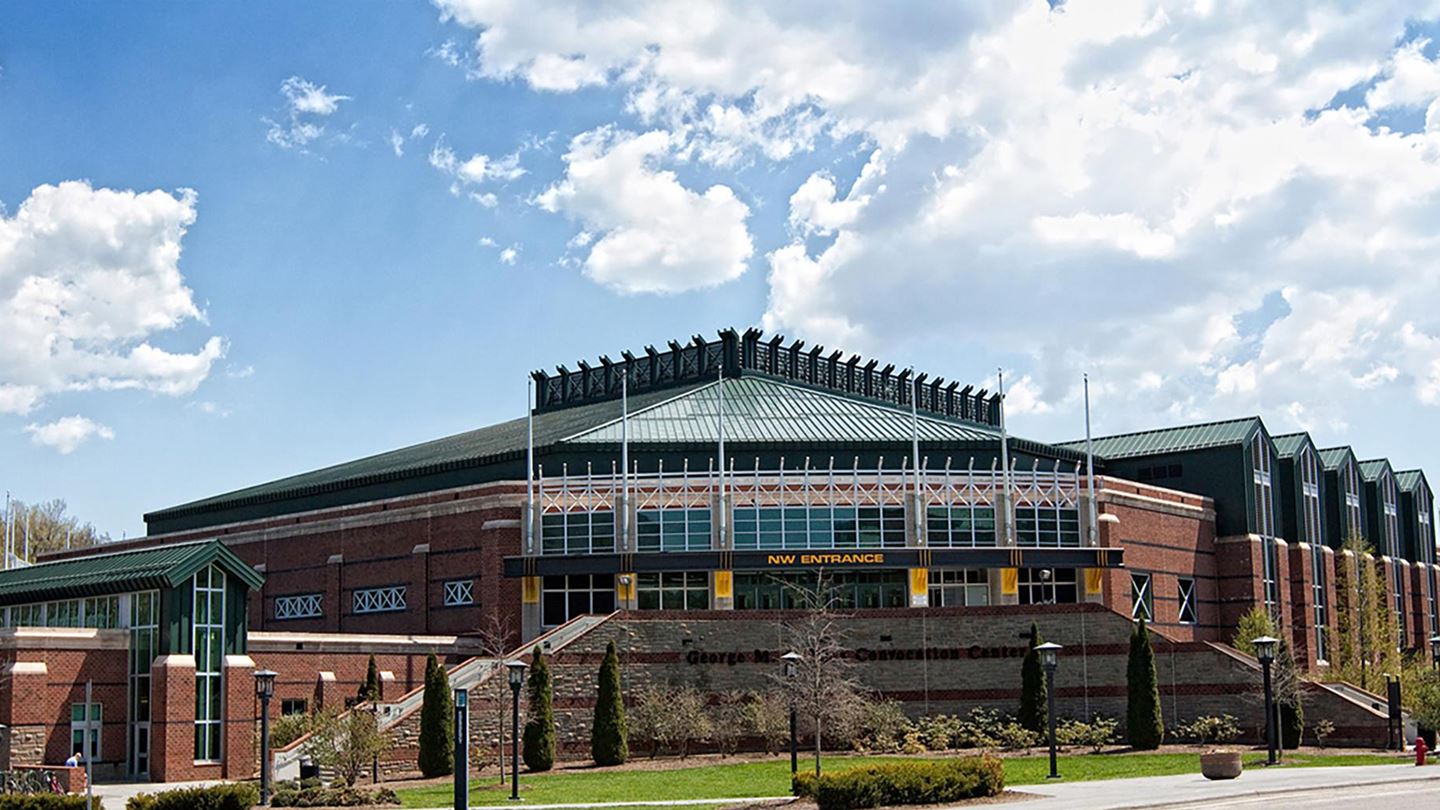
Last Updated on October 12, 2023 2:37 pm
BOONE, N.C. — This fall, Appalachian State University issued a request for qualifications from developers for a public-private partnership (P3) to build new student housing, parking and potential student support facilities at several Boone campus locations.
The goal is to provide approximately 1,850 new beds in new residence halls and apartments on App State’s Boone campus and Appalachian 105 property.
The project is the latest in a series of P3 housing developments planned and completed under the leadership of Chancellor Sheri Everts, including:
- the construction of 2,300 beds in four new student residence halls, replacing six aging structures; and
- the development of more than 150 below-market-rate faculty and staff housing units, underway now, which will help meet App State employees’ housing needs amid housing scarcity and cost inflation in Boone.
“We understand that we can make a difference in the tight housing market,” Everts said. “Guided by strategic planning, App State continues a process begun in 2015 to provide the significant housing investments — to be achieved through cost-effective partnerships — that our campus has long needed and that the market increasingly demands.”

In the last 10 years, the population of full-time App State students attending the Boone campus in person has increased by about 220 per year on average, remaining at or near 18,000 for the last three years. Despite the additions of new, privately owned off-campus student housing projects in recent years, a recent housing analysis confirmed that on-campus housing remains in high demand.
The project aims to accommodate robust demand from first-year students and upper-division students who wish to stay on campus in an environment that promotes their academic and personal success, as well as demand from upper-division students for privacy-focused apartments that are high quality and affordable.
The university anticipates approximately 1,000 beds to be developed on the Boone campus and approximately 850 beds to be developed as apartments at the Appalachian 105 site, located off N.C. Highway 105. Construction could potentially occur in phases, with a schedule to be determined, and could begin as soon as fall 2024.
“While the vast majority of our students find rental housing that suits their needs, the High Country’s robust second home and vacation rental market can make finding housing challenging for students who are not able to plan three to four months in advance,” said J.J. Brown, vice chancellor of student affairs. “We find this can be particularly challenging for transfer students, who are often admitted on a different cycle than our traditional undergraduate students.
“Adding additional beds to the on-campus inventory should have a significant effect on the long-term rental housing market, helping balance the supply and demand,” Brown said.
Compared with the traditional construction process, public-private partnerships can achieve significant cost savings on large projects due to a streamlined agreement with one developer. The recent construction of four new residence halls on the west side of campus was estimated to have saved the university at least $70 million.



















